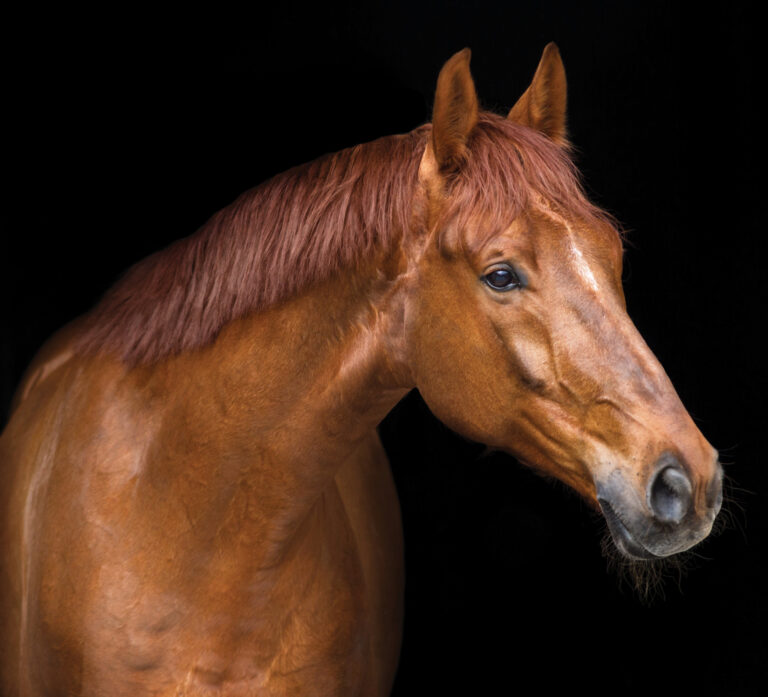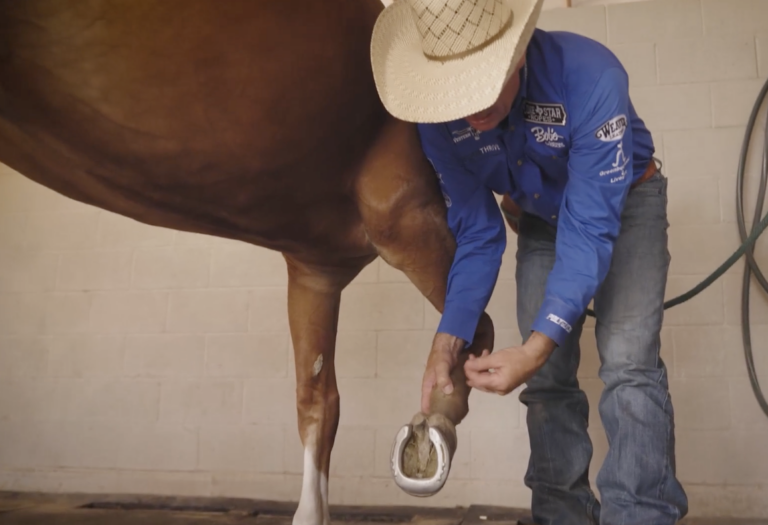Q My daughter and I own a 19-year-old Morgan mare we’d like to breed. She’s in excellent overall health and produced her only foal at age 7. Is 19 too old to breed? Does it matter that she’s already had one foal?

ALLISON RICH, Virginia
A It’s not uncommon or unreasonable for horse owners to wish to breed their senior mares, especially mares that have been in work. The fact that your mare is in good overall health is encouraging. Potential broodmares should also be in good flesh (but not overweight), and maintained at that weight with good nutrition.
Because your mare has previously had a foal, she’s now considered a barren mare. This status, combined with her age, does put her at greater odds of not conceiving. When a filly is born, she has all the ova, or eggs, that she’ll ever have in her lifetime. As your mare has aged, so have her ova, and older ova can lead to early embryonic death or no conception at all. That being said, it’s not unreasonable to attempt to breed your mare.
Start with an all-encompassing breeding-soundness examination. Have your veterinarian perform this exam well in advance of when you wish to breed your mare, to allow time to provide any corrective treatment that may be needed. The assessment should include an overall physical examination to detect any underlying issues, a perineal examination, and a transrectal palpation of the uterus and ovaries combined with ultrasound examination. Also needed is a speculum exam of the vagina and cervix, with digital palpation and a uterine culture and biopsy.
I’ll discuss each of these in more detail.
Examination of the perineal region of the mare (area between anus and vulva) can reveal poor conformation that might allow fecal material to enter the reproductive tract. If such conformation is noted, your vet can perform a Caslick’s procedure to partially close the vulva, creating a barrier to keep outside contamination from entering and making its way to the uterus.
Transrectal palpation and ultrasound of the mare’s entire reproductive tract, including the uterus and ovaries, reveals important information about the shape and condition of these organs. Ultrasound, in particular, can reveal problems within the uterus or ovaries that could be undetectable by palpation—even for the well-trained veterinarian.
Speculum exam and digital palpation of the vagina and cervix are necessary to ensure there are no adhesions (injuries resulting from the previous foaling) that might prevent the cervix from functioning properly. Urine pooling can also be detected via this exam.
Uterine culture can detect inflammation or infection of the uterine lining (endometritis) caused by bacteria, yeast, or fungi. A uterine biopsy can give a more in-depth look at the uterus, including evaluation of all layers of uterine lining. The biopsy should be graded and will give you a prognosis for the mare’s ability to carry a foal to term under proper management conditions.

In conclusion, work with your vet early-on to address any correctable conditions and to come up with a plan for managing the breeding of your mare.
JENNIFER H. KOZIOL, DVM, MS
Diplomate, American College
of Theriogenologists
Assistant Professor,
Purdue College of Veterinary Medicine






